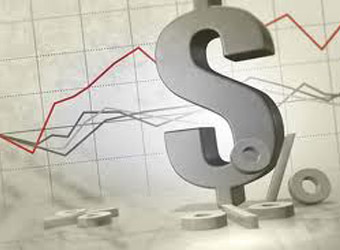The dollar inched up against the yen and euro on Tuesday as some investors emerged out of the holiday lull to hunt for bargains as the market entered the last trading stretch of the year.
The euro slipped 0.2 percent to $1.0435 after climbing overnight to $1.0469.
The dollar was up 0.3 percent at 117.420 yen after slipping to a six-day low near 117.000 the previous day in reaction to slightly lower U.S. yields. The 10-year Treasury note yield rebounded from the previous day’s decline to shore up the dollar.
The yen showed little reaction to Japan’s inflation data, which saw core consumer prices mark the ninth straight month of annual declines in November.
Movements were limited with financial markets in Sydney, Hong Kong and London still closed on Tuesday for the Christmas holidays.
“There isn’t much in the form of fresh incentives moving the market right now. The dollar is seeing some participants buy on dips that formed as it sagged through the Christmas break,” said Koji Fukaya, president of FPG Securities in Tokyo.
The U.S. currency had climbed to a 10-month high of 118.660 yen mid-month on the back of the Trump rally, during which it benefited from expectations of higher interest rates to match the incoming president’s stimulatory economic policies.
But the dollar, which surged more than 10 percent against the yen since Trump’s U.S. election win in November, has recently lost some of its momentum.
Some in the market now expect a deeper downward correction to grip the greenback, with the rise in U.S. debt yields slowing and concerns over Trump’s protectionist statements taking some shine off the dollar.
“Trump’s policies are understood to be conducive to inflation and a stronger currency. But a higher dollar would be a significant setback to the U.S. economy seemingly in the ending stages of an expansion,” wrote Makoto Noji, senior strategist at SMBC Nikko Securities.
“Therefore, the Trump administration and the Federal Reserve would have to stick to a cautious monetary policy stance to prevent the dollar from appreciating excessively. We thus expect a very gradual downtrend for dollar/yen.”
For now the dollar index added 0.1 percent to 103.100, clawing back towards a 14-year high of 103.650 marked a week ago.
The Australian dollar was down 0.3 percent at $0.7175, inching back towards a seven-month low of $0.7160 plumbed late last week on concerns over China’s economic growth.
The New Zealand dollar fell 0.2 percent to $0.6882, paring the gains made the previous day. The kiwi was close to $0.6863, a near seven-month trough plumbed on Friday against the broadly stronger dollar.
The U.S. currency also rose against the pound, which slipped 0.2 percent to $1.2272, putting it closer to a 1-1/2-month low of $1.2230 set on Friday.
Source: Reuters
